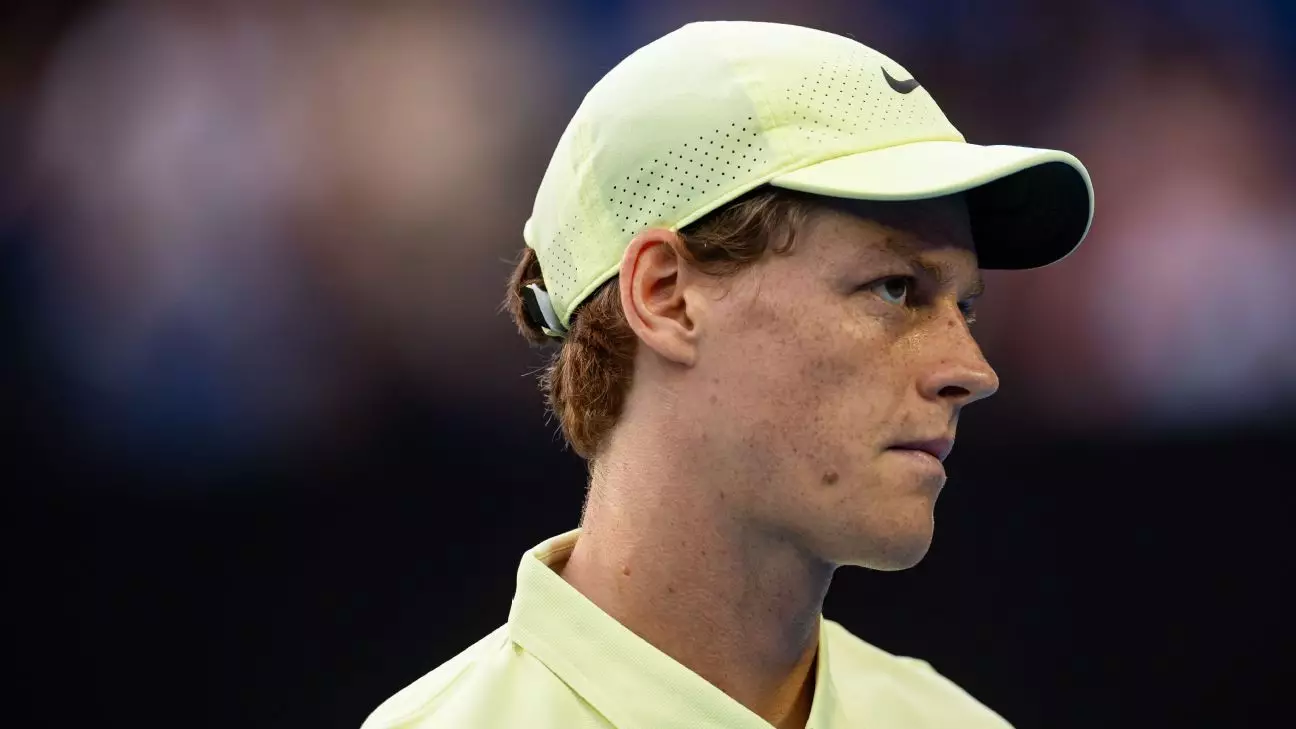Jannik Sinner’s recent suspension has revealed much about the intricate dynamics of the professional sports community, particularly in tennis. Faced with a three-month doping ban, the 22-year-old Italian’s experience during this challenging period has underscored his resilience in the face of adversity. What surprised him most was not only the array of messages, both supportive and indifferent, that filtered through from fellow players but also the implications of these reactions. As Sinner prepares to make his return at the upcoming Italian Open, the emotional landscape that has shaped his journey is critical to understanding his path forward.
In any competitive environment, support from one’s peers can often serve as a lifeline, yet Sinner’s experience shows that not all relationships are as straightforward. While some contemporaries reached out with encouragement, many remained silent, leaving Sinner to grapple with feelings of isolation. This duality raises questions about camaraderie within sports—a concept often glorified but frequently complicated by the competitive ethos that defines athletes’ careers. The absence of expected support reveals a stark reality: the world of tennis is rife with personal and professional complexities that can lead to both camaraderie and estrangement.
Facing the Judgment
The mysterious nature of public opinions surrounding Sinner’s suspension may continue to haunt him as he steps back into the limelight. Following a controversial ruling by the International Tennis Integrity Agency that exonerated him from intentional doping, Sinner’s return sparked divided sentiments among his peers. For some, his leniency felt like a loophole that undermines the integrity of the sport. As he candidly reflected on his discomfort in the locker room during the Australian Open, one can’t help but sympathize with the weight of external judgment on him.
This atmosphere of scrutiny undoubtedly affects players’ mental health, shaping how they interact on and off the court. Sinner’s unease suggests the psychological burden athletes carry, especially when intertwined with allegations of misconduct—even if unintentional. While they battle for supremacy on the court, they are also navigating the treacherous waters of public perception, which can gnaw at their confidence and sense of belonging.
The Role of Coaches and Mentorship
Amid this turmoil, the importance of mentorship and coaching comes into sharp focus. Sinner’s coaches, Simone Vagnozzi and Darren Cahill, have stood by him, advocating for the right mix of support and constructive feedback. Cahill’s impending retirement brings to light the challenges of continuity in coaching relationships, particularly at the elite level. Sinner’s reliance on Vagnozzi’s insights highlights the pivotal role of a coach in an athlete’s development, not merely in skills but also in emotional resilience.
Vagnozzi’s acknowledgment of the need for varied perspectives in coaching illustrates the complexity of navigating athletic careers. The blend of continuity and fresh viewpoints can create a balanced approach, essential for athletes who often feel the infinite pressure of performance. As Sinner adjusts to the realities of having diverse coaching influences, it is clear that effective mentorship is not just about technical skills but also about emotional fortitude.
A Comeback on Challenging Terrain
With his match against Mariano Navone on the horizon, Sinner enters a pivotal moment not only in terms of competition but also as a testament to his character. Having amassed a stellar winning streak prior to his ban, he faces the challenge of quickly regaining his form on clay—a surface where he has historically struggled. The Foro Italico will serve as both a battleground and a stage for a young athlete seeking to reclaim his narrative.
Many see this next match as a barometer of Sinner’s resilience and determination. Can he push past the stigma and self-doubt that came with his recent suspension? The pressure of the Italian Open, especially on home soil, adds layers to this challenge. However, history shows that great athletes frequently rise to adversity, making this moment an opportunity for Sinner to redefine not just his season but his identity as an athlete.
As the tennis world eagerly awaits his performance, it’s essential to recognize that Sinner’s journey embodies more than just his statistics and titles; it reflects personal growth, resilience in the face of judgment, and the complexities of human relationships in elite sport. From his surprising experiences with peers to the pivotal role of coaching, Sinner’s path is one woven with trials that ultimately shape the champion he aspires to become.

